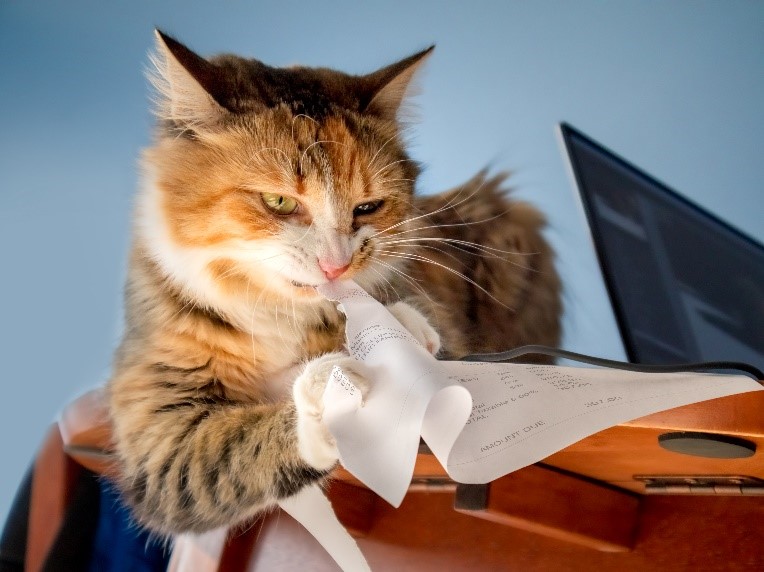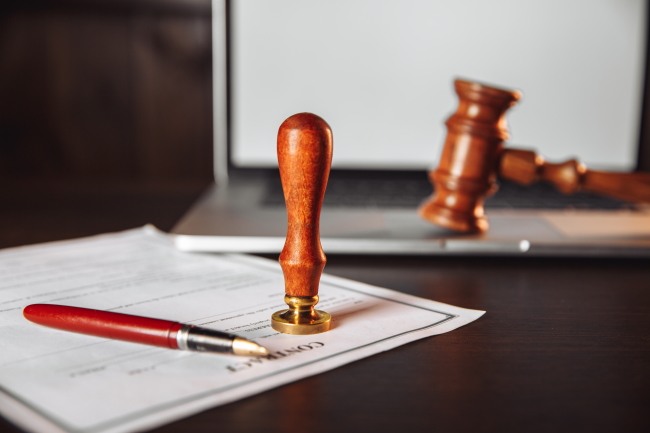A second method for making sure your estate is a mess is to make your Will incorrectly. This “Part Two” blog will discuss the most important technical requirements for making a Will correctly.
Believe it or not, state laws impose requirements to make a valid will. Some are absolute, and failing to comply with them makes the Will useless. Some are not absolute, but failing to comply with them makes it harder to “probate” the Will.
It helps to understand how a will is used. A will does not “avoid probate.” A will is the ticket to probate. It must be admitted in the probate court before anything can be done with it. Admitting the will to probate requires the court to verify that the Will is authentic, and ordinarily the original Will is required.
If survivors do not have the original Will, they must prove to the court that the testator (the person who made the will) did not tear it up. Destroying a will revokes it. Survivors must prove not only what happened to the original will, they must also prove the contents of the will even if they have a copy. A copy alone does not prove the contents of the will. A witness who knew the contents of the original will must testify that the copy is the same as the original. Proving the contents of a will should be easy if an attorney prepared it; the attorney should be able to testify that their copy is identical to the original. However, if a person prepared their own will, proving the contents may be very difficult or impossible.
Beyond keeping the original will, a will must be witnessed by two people to be valid. If the will is not signed by two witnesses, it is invalid. If you prepare your own will, make sure to follow instructions carefully and have it witnessed. The witnesses must be in the room with the testator when the testator signs and the witnesses must sign in the same room as the testator. Witnesses cannot sign the will “later.”
To prove that an original will is authentic, the will must be “self-proved” or one of the witnesses must go to court and swear that they signed the will. Identifying witnesses to a will can be difficult, especially if the witnesses did not print their names. Finding them is the next problem. Having at least one of the witnesses cooperate enough to go to the court is the final problem with authenticating a will that is not self-proved. If you prepare your own will, it is a good idea to have the witnesses print their names and list their addresses.
The alternative to finding a witness and convincing them to go to court, is to make the will self-proved. A self-proved will in Florida includes an affidavit at the end of the will. The affidavit must be signed by the testator, each of the witnesses, and a Notary. If the will is self-proved, no witness must go to court.
Having the original will, making sure it is witnessed by two people, and either having the will self-proved or presenting a witness at court are absolute requirements to admit a valid will to probate. Admitting a copy of a will to probate is possible but much harder than admitting the original. Other problems can arise that make a will harder to probate.
A will is harder to probate if the principal people named in the will are unavailable or deceased. At least one personal representative (“executor”) is required. In Florida, a personal representative must be a relative of the testator or a resident of Florida and must not have been convicted of a felony. If the named personal representative is deceased, incapacitated, not a relative, not a resident of Florida, or convicted of a felony, they cannot serve. Another person can be appointed as personal representative, but probating the will is more difficult if the named personal representative cannot serve.
A will is also harder to probate if one or more of the named beneficiaries are deceased and the will does not say what should happen to their share if they die before the testator. Often the will lists Beneficiary 1 “per stirpes.” Per stirpes means that the share due to Beneficiary 1 passes to Beneficiary 1’s descendants if Beneficiary 1 dies before the testator.
Having assets pass per stirpes is not necessarily a perfect solution. Per stirpes follows the chain of descent – if Beneficiary 1 had three children and one of those children is deceased, the asset will be divided between the two living children and the children of the deceased child. If one or more of the deceased child’s children are also deceased, the situation is even more complicated. You can easily see how naming a beneficiary per stirpes can also make the will harder to probate.
It is very important to keep your will up to date. If your personal representative or beneficiary is deceased, you should update the will unless it clearly names a successor to them. Even then, the person who admits the will to probate will have to produce a death certificate for each of the deceased parties.
The cost of making a valid will is much less than the cost of cleaning up a mess after your death. Blackburn Law Firm, PLLC – LifePlanLaw.com makes it as easy and affordable as possible to make a will. If you know your wishes and do not need an attorney to help you make decisions, you can visit www.MySimpleLifePlan.com for a very affordable way to make a will, health care directives, and power of attorney. If you prefer to speak with an attorney about your wishes, Estate Planning, Probate, Medicaid, or LGBTQ legal services, contact LifePlanLaw.com – Blackburn Law Firm, PLLC today at 727-826-0923 for a complimentary consultation.







